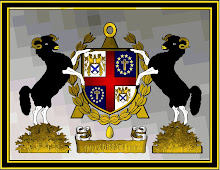Thomas Friedman in a recent column asserted that democracy is in “a recession”. Friedman attributes this to his “First Law of Oil and Politics” which posits that as world oil prices increase, the rise of democracies declines. Friedman asserts the potential for plundering this scarce asset is so attractive to potential and current tyrants that they strengthen their grip rather than supporting liberty. Friedman must believe that absent some looming monetary windfall, tyrants routinely relax their rule and submit to the will of the people. Despots will be despots at all times and as history proves yield only to superior force. It is not the power and wealth that tyrants derive from high oil profits that suppresses freedom, it is rather a want of cultural precedents and individual initiative that retards the establishment of new self governing regimes.Before examining this premise we must clarify what is meant by democracy.
In today’s political and social environment democracy is often equated with freedom or liberty. This is an incorrect assumption and leads to many and serious errors in both understanding and policy. Freedom is an attribute of individual persons and means to live without oppression. Democracy is merely a method by which free people resolve civic conflict without resorting to violence. Liberty may exist without democracy but democracy [true democracy] cannot be without individual liberty.
A deep and powerful canon of historical and spiritual precedents are necessary if democracy is to exist. The first and foremost of these is the priority of the individual over and against the group. This is a very, almost exclusively Western philosophy that finds its genesis in very Eastern spiritual beliefs. In fact it is the first book of the Hebrew Bible, The Book of Genesis where the Judeo-Christian view of the supremacy of the individual is established. In the biblical account of creation, God declares that he has made man in His image, endowed with the dignity and value of God himself. Each man is intrinsically free [subject only to God himself] to own his own body, the fruit of his labors and the free exercise of his will. Later in The Decalogue, God further declares the individual sacrosanct by forbidding his murder and prohibiting assaults on his property and reputation. 3500 years of struggles in philosophy and blood informed the founders of the American democracy to affirm that the individual possesses rights of life, liberty and the pursuit of happiness that are inalienable and subject to no earthly power.
In most non-western societies the group is ascendant. Rights are possessed by the tribe, sect or ethnic group rather than distinct persons. Liberty in these societies means freedom from forces of oppression outside the group. Inside the clan all members are subject to strict adherence to group prerogatives. Individual autonomy is unheard of.
In the West, liberty is the individual’s superior claim against the collective. Where ones value, position, pride and life are contingent on the power of family, clan or tribe; to dissent against the moral or social imperatives of the group or to act in furtherance of one’s personal agenda is to risk being ostracized or worst. Thus personal beliefs and desires are rigorously repressed. This dynamic occurring over generations creates a subdued and servile population virtually demanding of a potentate.On the other hand in highly developed individualistic societies, personal action is highly valued and encouraged. Collective restraint of private prerogative establishes a constant tension in civic society and certain resentment in the population.
Thomas Jefferson said that from time to time the tree of liberty must be fertilized by the blood of free men. A critical mass of popular resentment must exist before men become willing to shed the necessary blood and treasure to throw off a despot. Free societies are formed out of extreme discontent leading to revolution. Societies normalized over hundreds of years to group subjugation are infertile grounds for such initiative, nor are those marked by complacency, cynicism and fear.Much, much more than discontent and rebellion is required if a society is to effectively and peacefully govern itself. Hundreds of years of acquired wisdom, tradition and devotion to freedom, justice and the rule of law must pre-exist the revolution.
It is not fluctuating commodity prices or the failure of United States’ support for rule by consent that accounts for the dearth of new democracies. Popular governance represents the highest order of human organization. It is the “rocket science” of civil polity. To expect a historically servile and uneducated people to rise up and overthrow an authoritarian regime and establish effective democratic rule is an act of naivety akin to handing a group of fourth grade students a physics text and expecting them to put in place and operate a space station. Freedom does not ring throughout the world simply because the world is incompetent to ring the bells.
skip to main |
skip to sidebar
About Me
- J. Robert Brock Hacker
- Mr. Hacker is a Christian an Urban Planner and Land Developer.He lives with his wife of 38 years in Lexington, Kentucky




